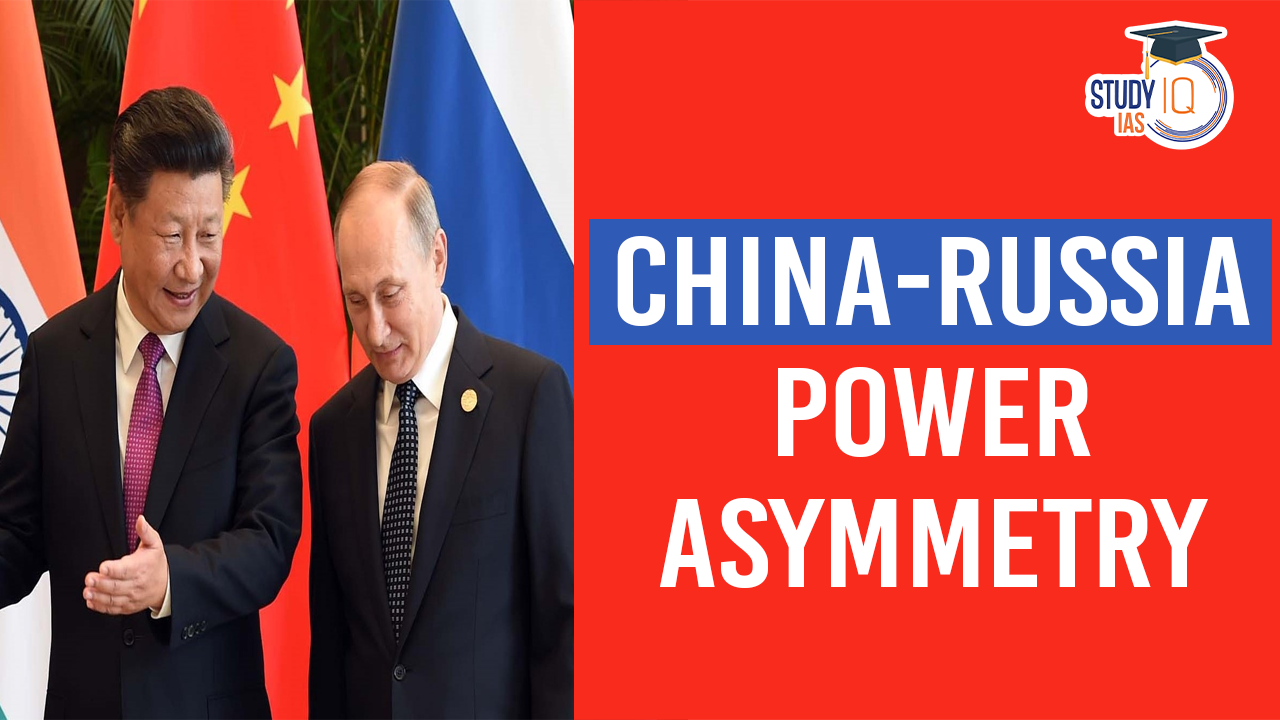Table of Contents
Context
- The Russian invasion of Ukraine in 2022 has significantly altered the global geopolitical landscape, particularly by strengthening the ties between Russia and China.
- The deepening Sino-Russian partnership has raised concerns globally, including in India, where questions have been raised about the reliability of Russia as a security partner.
Strengthening Sino-Russian Relations
- Shift in Global Alliances: The invasion has led to a stronger trans-Atlantic alignment against Russia and pushed Russia closer to China.
- This shift raises concerns about Russia’s reliability as a security partner for countries like India, which has traditionally viewed Russia as a trusted ally.
- Economic Dependence: Despite appearances of a balanced trade relationship, there is a significant asymmetry:
- In 2023, 30.4% of Russia’s total exports went to China, while only 3% of China’s total exports were from Russia.
- Over 70% of Russia’s exports to China were energy products in 2022, highlighting Russia’s dependence on China for its economic stability.
- Joint Grievances Against Western Dominance: Both countries share frustrations with the U.S.-led financial system, particularly regarding the dominance of the dollar and the SWIFT payment system.
- Following sanctions on Russia, both nations have sought alternatives to reduce reliance on Western financial systems.
Economic Asymmetry
- Trade Imbalance: The trade dynamics reveal a stark imbalance:
- In 2023, imports from China accounted for 36% of Russia’s total imports, while exports to China represented only about 5% of China’s total imports.
- This dependence is further illustrated by the fact that China’s share in Russian imports of critical machine tools increased from 28% in 2021 to 59% in 2022.
- High-Priority Goods Dependency: Russia has become increasingly reliant on China for essential goods needed for its military and industrial sectors.
- By 2023, 89% of Russia’s high-priority import needs were sourced from China.
Implications for India
- Geopolitical Concerns: Despite goodwill in India-Russia relations, Moscow’s geopolitical alignment now favours Beijing over New Delhi.
- Limited Trade with Russia: Trade between India and Russia remains minimal compared to the burgeoning Sino-Russian trade relationship.
- In FY 2023-24, trade between India and Russia was approximately $65.7 billion, but this pales in comparison to the extensive economic ties between China and Russia.
- Strategic Autonomy at Risk: The growing dependence of Russia on China raises questions about Moscow’s ability to maintain autonomy in its foreign policy decisions.
- If forced to choose between aligning with Beijing or New Delhi, it is likely that Moscow would lean towards Beijing due to economic necessity.


 Political Trilemma Concept and Crisis in...
Political Trilemma Concept and Crisis in...
 Global Pandemic Treaty, Objectives and K...
Global Pandemic Treaty, Objectives and K...
 Shimla Agreement 1972 to 2025: From Peac...
Shimla Agreement 1972 to 2025: From Peac...





















